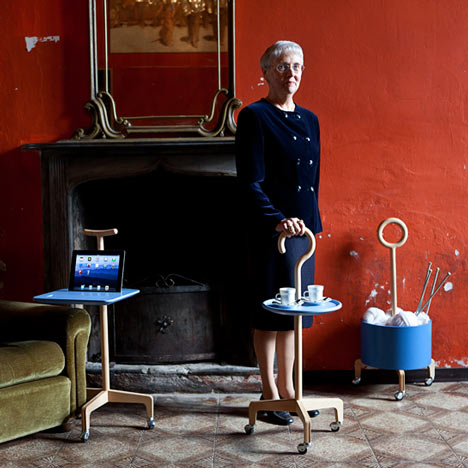
No Country For Old Men by Lanzavecchia + Wai
Italian-Singaporean designers Lanzavecchia + Wai have designed a collection of aids for the elderly with styling that's more domestic than medical.
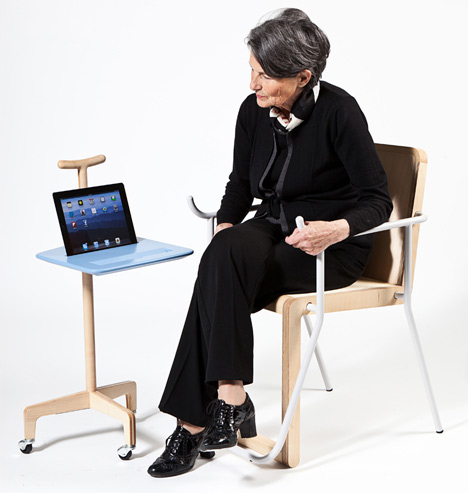
Called No Country For Old Men, the series includes walking canes with integrated trays, iPad stands or baskets, a chair that's easier to get out of thanks to a foot bar for tipping it forward and a lamp with a magnifying screen.
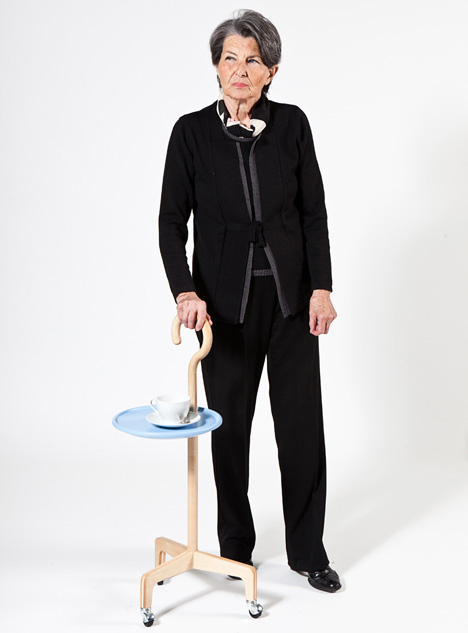
Materials like wood and marble integrate the pieces in a domestic interior where their standard counterparts can feel alien outside a clinical environment.
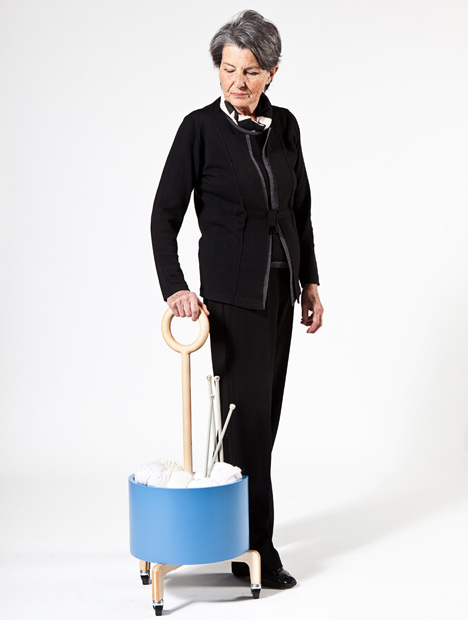
They presented the objects as part of Salone Satellite at the Salone Internazionale del Mobile in Milan last month.
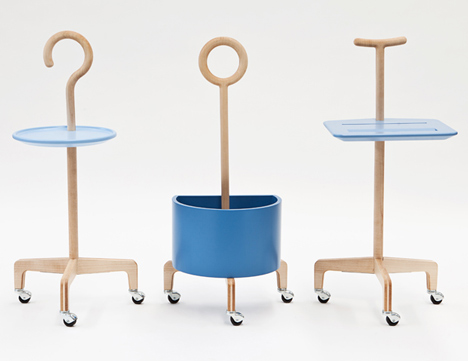
Yves Behar recently collaborated with new brand Sabi to launch a range of medical aids to tackle the stigma of products normally associated with hospitals and nursing homes for a design-conscious ageing population. Read more in our earlier story.
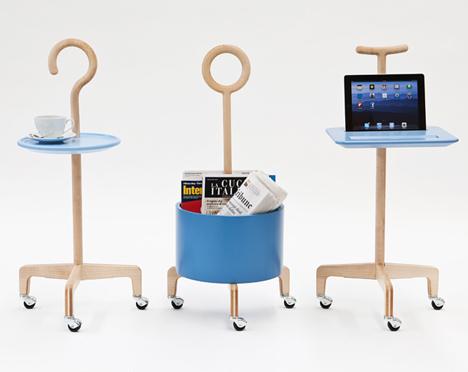
See more about Lanzavecchia + Wai on Dezeen »
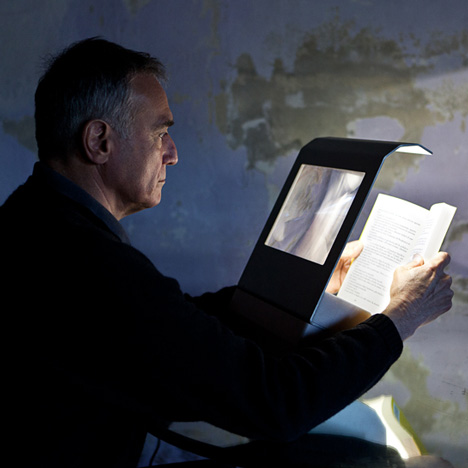
The Salone Internazionale del Mobile took place from 17 to 22 April. See all our stories about Milan 2012 here, plus photos on Facebook and Pinterest.
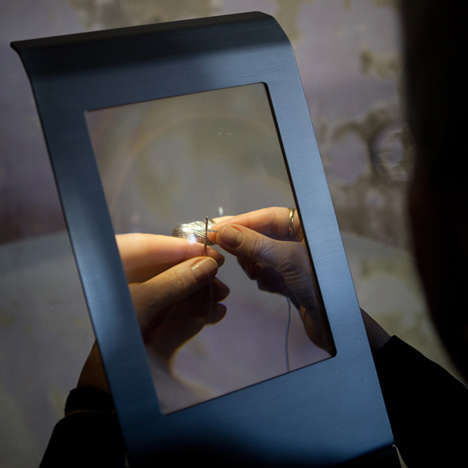
Photographs are by Davide Farabegoli.
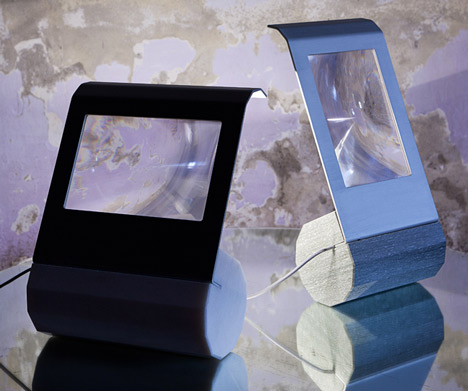
Here's some more information from the designers:
No Country for Old Men - A Collection of Domestic Objects for the Elderly
The No Country for Old Men collection: Together canes, MonoLight table lamps & Assunta chair
During the Milan Design Week 2012, Lanzavecchia + Wai, a creative studio of Francesca Lanzavecchia and Hunn Wai presented No Country for Old Men, a collection of domestic objects for the elderly.
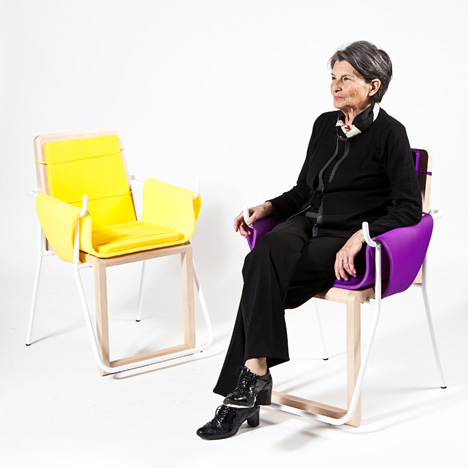
To read, to get-up, to move yourself and your possessions around, at home; the project "No Country for Old Men" is a small family of objects that is not only attentive to the daily difficulties encountered by the elderly, but also how it can finally complement our domestic living spaces and acquired laziness.
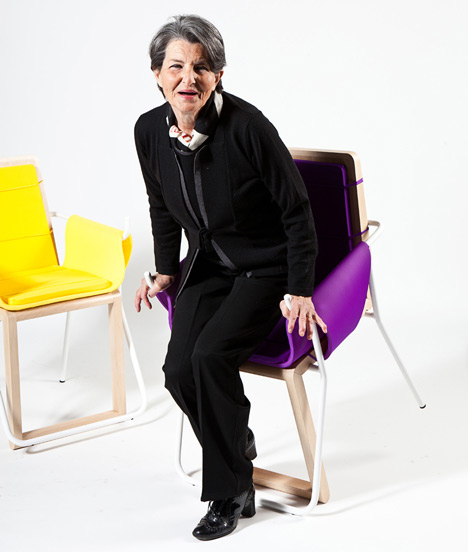
Together Canes - T-Cane, U-Cane & I-Cane - walking aids for living, not just mobility.
The activity spheres that exist in a home become fluid and blurred with modern living habits and mobile devices. The T, U and I-canes not only provide interstitial support to the elderly, but also allow them and modern dwellers to bring along their tea-time, a collection of magazines and books and also to prop up their iPad for viewing from the sofa or typing out an email or document.
T-Cane - the cane designed for our grandmothers to keep on carrying the tea tray.
U-Cane - the container cane that can be a magazine holder, a knitting basket or…
I-Cane - the iPad cane for the Elderly 2.0.
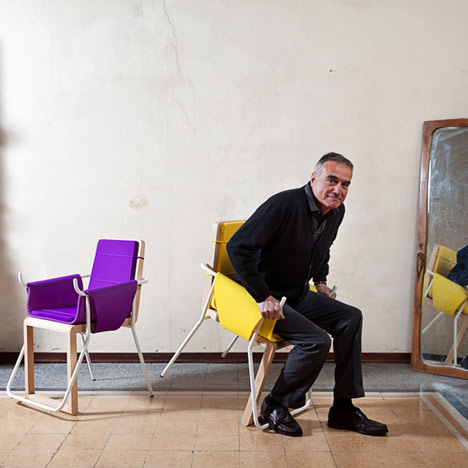
The aging process brings about a natural decline in muscle tone and bone density that contributes to decreased mobility, stability, strength and endurance. Actions that are taken for granted can become more difficult with age. Simply standing up from a chair is difficult for some seniors due to muscle mass and strength losses. This is aggravated by our increasingly sedentary work-and-lifestyles.
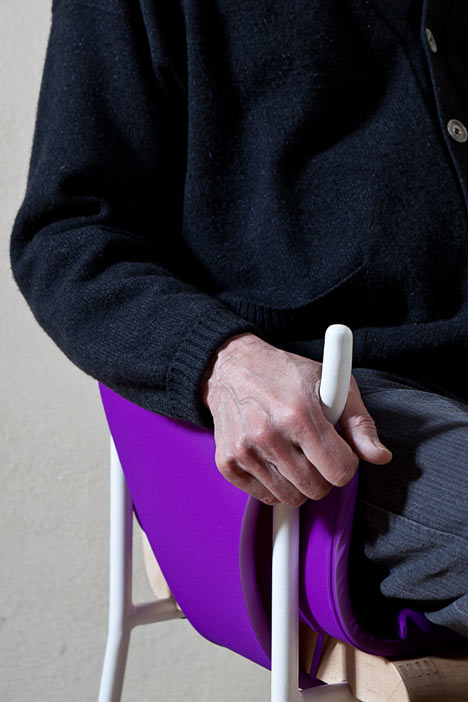
Assunta assists by appropriating the user’s own body weight as leverage by stepping on the foot bar and as well as assures stability by having arm-rests that follow this tilting motion.
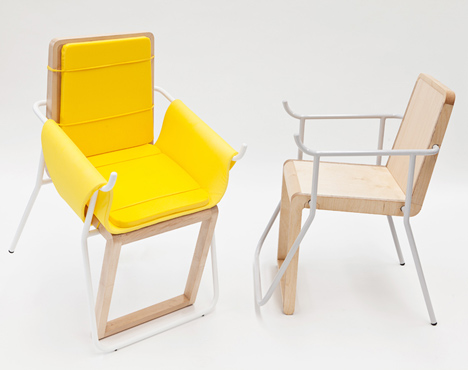
Informed by contemporary choices of material and expression, both aesthetical and functional, Assunta assumes its domestic role by assisting this common action of getting up from a chair as a considered and holistic product.
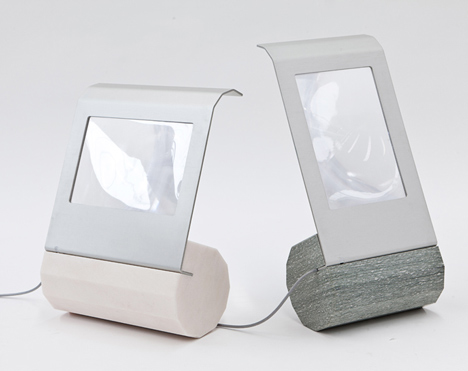
MonoLight Table Lamp - a lamp that illuminates & magnifies. Eye-sight deteriorates with age and long-hours in front of the computer screen.
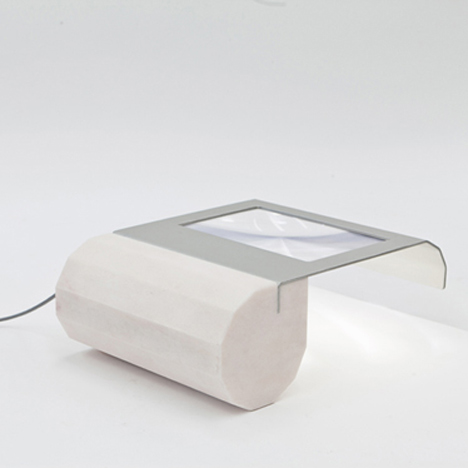
MonoLight is a handsome table lamp with a magnifying screen and LED components housed in a CNC-machined aluminium enclosure, anchored to a dodecagon-profiled marble base, to enable various degrees of viewing angles.
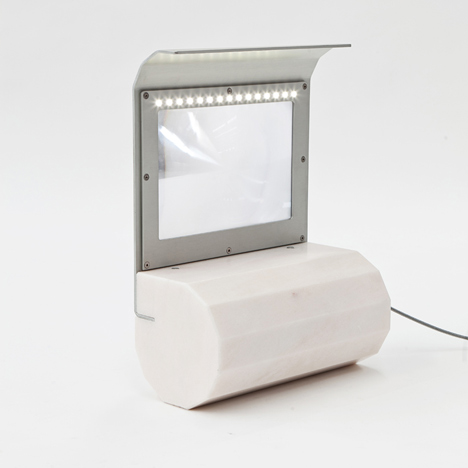
The lamp comes in both portrait and landscape models to fit the reader’s viewing preference, and to change the angle, a simple gesture of tilting the aluminium frame whilst the heft of the marble piece keeps it in the desired position.